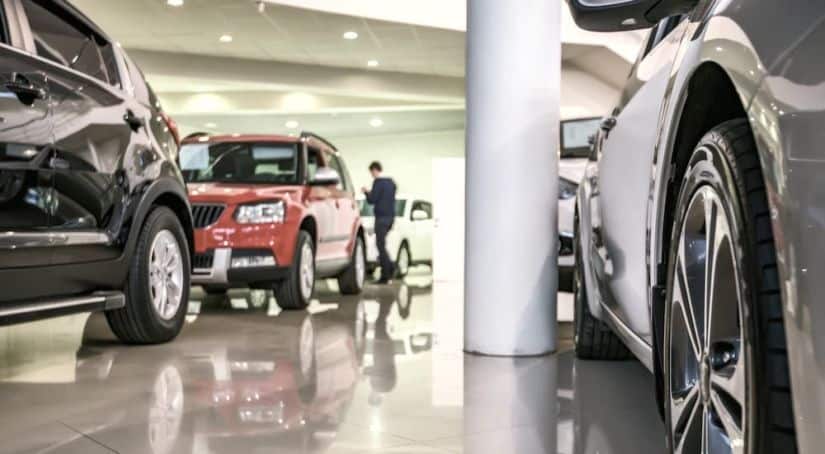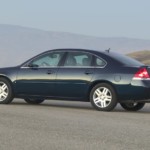While the automotive world always tends to focus on the latest and greatest, most people are really more interested in cheap basic transportation. While having massive amounts of horsepower, cutting edge technology, and too many features to count is nice, it is not really necessary and often is not in the budget. Unfortunately, there are really no new cars today that are truly cheap, with even the least expensive models still running in the $15,000 range. This means that those in search of cheap transportation must instead turn to the used car market. Luckily, modern cars are more durable and reliable than ever before, and even cheap older used cars can provide acceptable transportation. However, while the used car market is filled with opportunity, it also has many pitfalls for the unwary. So before you begin your search, here are five tips to keep in mind when looking at cheap used cars for sale.
Simpler is Better
Although the used car market has many impressive deals on powerful trucks, fast sports cars, and fancy luxury vehicles, if you are looking for cheap transportation, then it is best to avoid these and focus on basic models. The lower trims of common compact and midsize sedans are usually the best place to start. While these cars may be boring, they will allow you to buy a newer and lower mileage vehicle for the same price as something more interesting.
Further, the more features that a used car has, the more likely that some of those features will have problems. Anything with cutting edge technology for its day is best avoided outright, especially since, in older cars, those formerly advanced features will often appear antiquated by modern standards. However, even some basic options such as sunroofs can lead to issues down the road as well as making the car more expensive upfront.
Age Matters
Everyone understands that a high mileage used car can mean trouble. However, the age of the vehicle can be more important than the number on the odometer. Modern cars can easily make it over 200,000 miles or more with some basic maintenance, but even well cared for older vehicles will experience deterioration of components such as belts and gaskets. A general rule of thumb is that the ten to twenty year mark is when age-related problems will begin exhibiting themselves, and buying a car older than this can require a lot of extra maintenance to keep it running properly.
In the northern parts of the county, older vehicles will also usually have issues with rust, making them an even riskier proposition. And while a higher newer high mileage car can be a better choice than an older low mileage car, even a newer used car with exceptionally low mileage is something to be cautious of. Not only will such a vehicle usually cost more than a similar car with more miles on it, but very low mileage likely indicates that the car was either used for lots of short trips where it was not giving time to warm up properly or that it was left sitting unused for long periods of time. Since cars are designed to be driven, in either case, a higher mileage car might actually be the more reliable option, especially if it was used mainly for easy highway miles.

Be Skeptical of Bargains
One of the most important tips to keep in mind when looking at cheap used cars for sale is that if a price looks too good to be true, then it probably is. If a car is being sold for far less than similar vehicles, spend some time trying to determine why. Often especially cheap used cars will turn out to have salvage titles, frame damage, theft history, or other major red flags.
A simple online search of the car’s VIN will often reveal these issues, and there are numerous services that sell detailed vehicle history reports. However, this does not mean that you should avoid good bargains as there are legitimate reasons why a car might be priced lower than normal. It could have cosmetic damage, it might be missing a common feature, or the seller may have simply had it on the lot too long and wants to move it. Just make sure to do your homework to figure out what that reason is and preferably get a certified mechanic to look over the vehicle for any hidden issues that might be missing from the official report.
Consider Running Costs
Whenever you are looking at a cheap used car for sale, do not just look at the purchase price but take a moment to estimate the total cost of ownership. This includes gasoline costs, insurance costs, and maintenance costs. A lot of brands and models, particularly luxury cars but also some economy models, depreciate very quickly as they age. This may make them appear to be a bargain at first, but the high depreciation is because no one wants to deal with the issues common to older examples of these cars. And while the most common issue in these situations is low reliability, it can also be higher than average maintenance costs.
Many luxury brands will charge exorbitant amounts for parts and labor, and older or rarer vehicles may be difficult to work on or find parts for. And while older used cars will likely cost less upfront, older vehicles also often have extremely poor fuel economy compared to modern cars. Over time this can add up, and buying a newer and more efficient vehicle might just cost less in the long run. Paying attention to model year changes can be particularly important here, as a drivetrain upgrade can mean large fuel savings even if the rest of the car went unchanged.

The Seller Matters
When buying a cheap used car, it is important to consider who you are buying it from. Sellers generally fall into three groups. Certified new car dealerships that get used vehicles as trade-ins, dedicated used car dealerships, and private sellers. A new car dealership will generally put the most effort into making sure that a used car is up to spec before selling it. However, these dealerships have more overhead and often will not sell particularly old or high mileage used cars. So while buying from a new car dealership is generally the safest route, it is also usually the most expensive.
A used car dealership can range from a large business that is every bit the equal of a new car dealership all the way down to a one-man shop, with quality and pricing varying accordingly. If possible, do some research on the dealership and try to gauge their reputation. Used car dealer stereotypes exist for a reason, and some of these dealerships can be less than honest. However, a quality used car dealership can be the single best place to find cheap used cars for sale. Finally, there are private sellers. Buying from an individual is the riskiest option, but if you know what you are doing, it will also provide the best deals. Because of the lack of guarantees with this method, you should always pay less buying from a private seller than from an actual dealership.



